What’s keeping us from having authentic conversations and relationships?
What’s heaping upon us unneeded anxiety, fear, and feelings of failure — and then we wonder why we’re struggling to move forward in our lives?
We all struggle. Yet, we’re all struggling to make it appear like we’re not struggling. (click to tweet that)
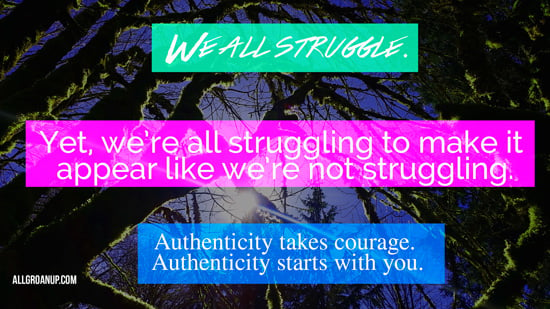
The biggest problem I see? The New OCD — Obsessive Comparison Disorder.
Comparison is the thief of joy.” – Teddy Roosevelt
Wort of all — Obsessive Comparison Disorder isolates us.
It’s hard to talk about the hard stuff in our lives if we’re constantly trying to make it appear like nothing in our lives is hard.
I first defined and wrote about this new OCD — Obsessive Comparison Disorder — in 2011 in this blog here at All Groan Up about the crazy-making of comparison. Then I wrote about it more in my book 101 Secrets For Your Twenties and even in recent articles like this one on Relevant magazine.
However, this week I climbed up to the mountains to talk even more honestly about the effects of Obsessive Comparison Disorder and how we stop it.
I even talk about something Obsessive Comparison Disorder compels me to do that I’m not proud of (hint: it might involve raw cookie dough).
Watch the video of me discussing the effects of Obsessive Comparison Disorder and how we stop it.
As I wrote in 101 Secrets For Your Twenties,
“We need to sail on our own ship instead of drowning trying to swim to everyone else’s.”
We need to stop our Obsessive Comparison Disorder before it completely stops us.
How is Obsessive Comparison Disorder effecting you and how do you begin to cure it? Watch the video below to find out.
I’d love to hear your thoughts about Obsessive Comparison Disorder in the comments on this video or within the comments here at All Groan Up.
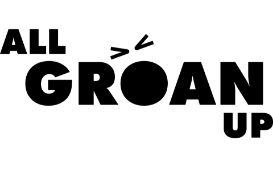
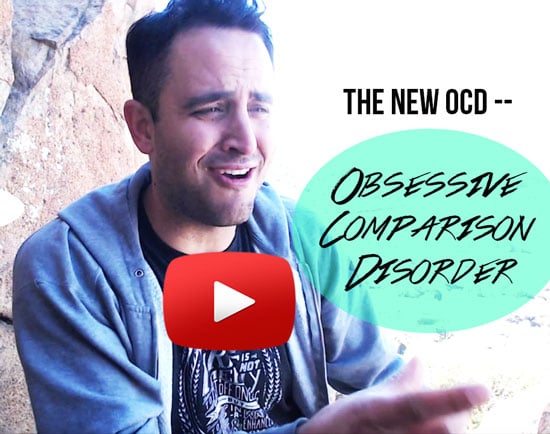

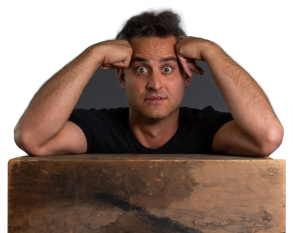
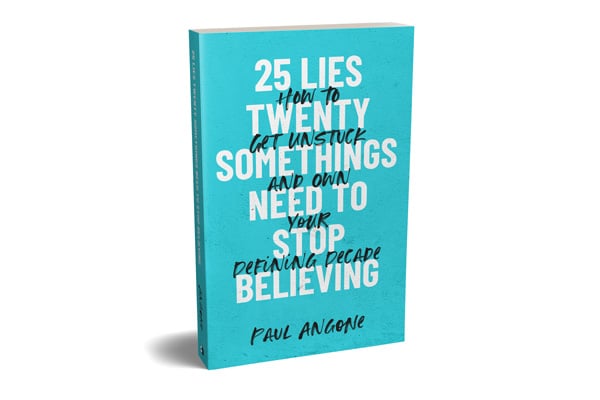
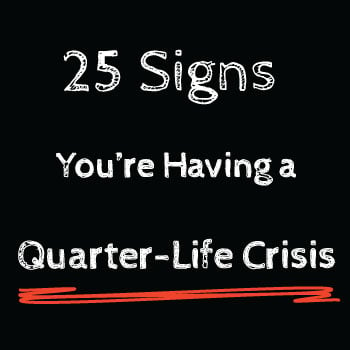

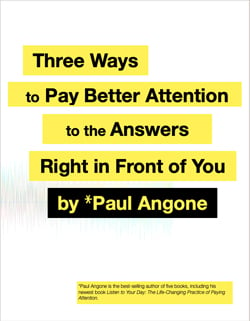
Hello!
I want to start by saying that I really enjoy many of your posts. You post on important topics in a light-hearted and engaging way. It is clear that you care very much about what you write and it is not done without a lot of thought. I also agree that comparison can go too far and have destructive effects. However, it is not a mental disorder. It is far different than the true OCD, Obsessive-Compulsive Disorder. I truly believe that your heart is in the right place here, and I thank you for talking about this issue. It is so important. But I also think that calling excessive comparison the new OCD makes light of actual mental disorders, and suggests that perhaps Obsessive-Compulsive Disorder is old and unimportant. Or that it is out of style and needs to be replaced. I totally get that describing comparison gone wrong in this fashion is catchy and highlights the fact that it is unhealthy. Still, it is not an actual mental disorder and passing it off as one belittles the seriousness of genuine mental disorders and the people who deal with them. I respectfully ask you to consider changing the writing of this post, or maybe adding a statement that says you are not equating this attitude of comparison to mental illness. Again, I believe that the main topic is important, but the way it is presented is in poor taste. And for me, the presentation actually distracts from the message. Do what you think is best, but please consider how your words are coming across. I wish you the best as you continue writing, and I look forward to seeing great things from you in the future.